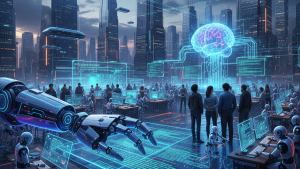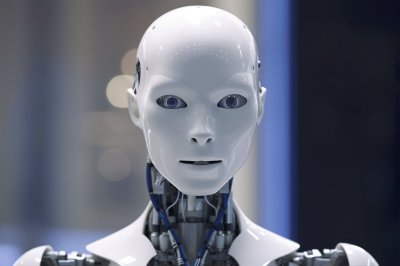The Rise of AI Coding Agents: How Intelligent Assistants Are Revolutionizing Software Development

The morning sun filters through the windows of TechFlow Inc.'s San Francisco office as Sarah Chen, a senior full-stack developer, settles into her workstation. What used to be a daunting task of building a customer authentication system from scratch now feels like a collaborative dance. As she types her requirements in natural language, her AI coding agent springs into action, generating boilerplate code, suggesting optimizations, and even catching potential security vulnerabilities before they become problems.
"It's like having a really smart intern who never gets tired and has read every programming manual ever written," Sarah laughs, watching as the AI generates clean, well-documented Python functions. "But unlike an intern, it actually makes fewer mistakes than I do."
What Exactly Are AI Coding Agents?
AI coding agents represent a sophisticated evolution beyond simple code completion tools. While traditional IDEs might suggest the next word or line, these intelligent systems understand context, project architecture, and programming best practices at a deeper level. They can analyze entire codebases, understand business requirements written in plain English, and generate substantial chunks of functional code.
Dr. Marcus Rodriguez, who leads the AI research team at CodeSphere Technologies, explains the distinction: "Traditional tools are reactive—they respond to what you've already written. AI coding agents are proactive partners. They can take a high-level description like 'create a REST API for user management with authentication' and deliver a complete, production-ready implementation."
These agents leverage large language models trained on millions of code repositories, documentation, and programming best practices. But they go beyond mere pattern matching. The most advanced systems can reason about code structure, understand the relationships between different parts of a system, and even explain their decision-making process to developers.
The Technology Behind the Magic
The sophistication of modern AI coding agents stems from their multi-layered architecture. At their core, transformer-based neural networks process code much like they would human language, understanding syntax, semantics, and contextual relationships. However, the real breakthrough came when developers began treating code as a form of structured communication rather than just text.
"Code has grammar, style, and intent—just like human language," explains Dr. Jennifer Liu, a machine learning researcher at the Institute for Advanced Computing. "But it also has logical constraints, performance requirements, and security implications. Teaching AI to understand all these dimensions simultaneously was the key breakthrough."
Recent advances in retrieval-augmented generation (RAG) have enabled these agents to access and incorporate real-time information from documentation, Stack Overflow, and even proprietary company codebases. This means they can suggest solutions that are not only syntactically correct but also aligned with current best practices and specific project requirements.
Real-World Impact: Beyond the Hype
The statistics paint a compelling picture of adoption. According to a recent survey by DeveloperInsights, 73% of professional developers now use some form of AI coding assistance regularly, with 45% reporting significant productivity gains. But the real stories emerge from the trenches of software development.
At startup NeuralNest, CTO David Kim credits AI coding agents with helping his small team of five developers build and deploy their machine learning platform in just eight months—a project that previously would have required a team of fifteen and taken over a year.
"We were able to focus on the creative, problem-solving aspects of development while the AI handled the routine implementation details," Kim explains. "It's not about replacing developers—it's about amplifying human creativity and intuition."
The impact extends beyond just faster coding. Junior developers report accelerated learning curves as they observe AI-generated code and explanations. Senior developers find themselves spending more time on architecture and design decisions rather than wrestling with syntax and boilerplate code.
The Challenges and Growing Pains
However, the integration of AI coding agents hasn't been without challenges. Maria Santos, a security consultant who has worked with dozens of companies implementing these tools, points out concerning trends: "We're seeing developers become overly reliant on AI-generated code without fully understanding what it does. This creates potential security vulnerabilities and makes debugging much more difficult."
There's also the question of code quality and maintainability. While AI agents excel at generating functional code quickly, critics argue that the resulting software can sometimes lack the thoughtful structure and documentation that makes long-term maintenance feasible.
"AI can write code that works, but can it write code that will still be understandable and modifiable in five years?" asks veteran software architect Robert Chen. "That's the real test of these tools."
Intellectual property concerns have also emerged as companies grapple with questions about code ownership, licensing, and the potential for AI agents to inadvertently reproduce copyrighted code from their training datasets.
The Human Element Remains Irreplaceable
Despite the impressive capabilities of AI coding agents, industry experts emphasize that human expertise remains crucial. The most successful implementations treat these tools as sophisticated assistants rather than replacements for human judgment.
"Programming is ultimately about solving human problems," notes Dr. Rodriguez. "AI can help us implement solutions more efficiently, but understanding what problem to solve and why—that still requires human insight, empathy, and creativity."
The most effective development teams have learned to leverage AI coding agents for routine tasks like boilerplate generation, code formatting, and basic testing, while reserving complex architectural decisions, creative problem-solving, and user experience considerations for human developers.
Looking to the Future
As we look ahead, the evolution of AI coding agents shows no signs of slowing. Emerging capabilities include natural language debugging, automated code review, and even AI systems that can participate in design meetings and contribute to technical discussions.
Some companies are experimenting with AI agents that can work independently on assigned tickets, commit code to repositories, and even participate in code reviews with human team members. While these applications remain experimental, they hint at a future where the boundary between human and artificial intelligence in software development becomes increasingly fluid.
The next frontier appears to be AI agents that can understand and work across entire software ecosystems, managing deployments, monitoring performance, and even making autonomous decisions about scaling and optimization.
Conclusion: A New Chapter in Software Development
As Sarah Chen wraps up her day at TechFlow Inc., she reflects on how dramatically her work has changed. The authentication system that might have taken her a week to build solo was completed in a day and a half with her AI coding partner. More importantly, she spent most of her time thinking about user experience and system design rather than debugging syntax errors.
"It's not about humans versus machines," she muses, watching her AI agent run final tests on the day's code. "It's about humans with machines, solving problems we never thought possible before."
The rise of AI coding agents represents more than just a technological advancement—it's a fundamental shift in how we approach software development. As these tools become more sophisticated and widely adopted, they promise to democratize programming, accelerate innovation, and free human developers to focus on what they do best: turning creative vision into digital reality.
The revolution is already here, quietly transforming keyboards and screens across the globe. And for the millions of developers embracing these intelligent companions, the future of coding has never looked brighter.
This article explores the current state and future potential of AI coding agents based on industry research, expert interviews, and real-world implementations across the technology sector.
Comments
Related News

@devadigax | 01 Oct 2025

@devadigax | 18 Sep 2025

@devadigax | 27 Aug 2025
 AI Tool Buzz
AI Tool Buzz